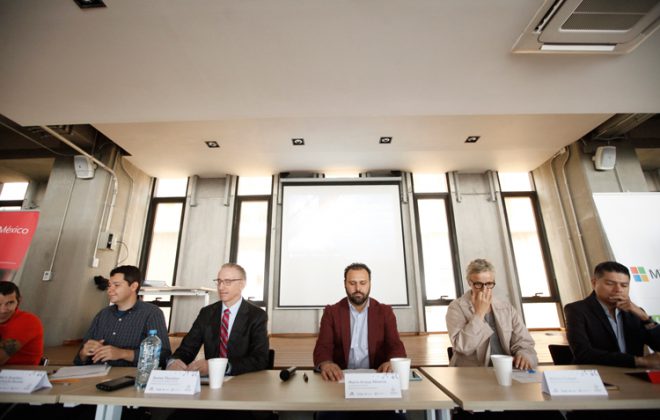Digital push must be disability-inclusive
April 03, 2017 00:02 IST
As India catapults towards a digital economy, making ICT accessible to the disabled is a must
Around 8-10% of India’s population lives with disabilities, with an equal number constituting the aged. Information and Communication Technologies (ICT) have the potential to significantly impact the lives of these groups, facilitating access of services available to them and allowing them to handle a wide range of activities independently, enhancing their social, cultural, political and economic participation. Making ICT accessible no longer remains an option but has become a necessity.
Poor accessibility due to lack of focussed information and political will has led to social exclusion of people with disabilities, exacerbating the negative impact of the existing digital divide. The new call for action of disability rights activists now is “Cause No Harm”, thus ensuring future generations are not excluded from mainstream activities due to a hostile infrastructure.
This assumes a greater thrust given the unprecedented developmental activity in the country under the various missions launched by the present government, such as the Smart Cities Mission and Digital India. Accessibility for disabled people is a cross-cutting theme across all of these and care must be taken to ensure disability-inclusive development.
Accessibility as a link
Incorporation of accessibility principles across all new developments will also complement the Accessible India Campaign, the flagship campaign launched by the Prime Minister on World Disability Day which aims at achieving universal accessibility for all citizens and creating an enabling and barrier-free environment. India was one of the first countries to ratify the United Nations Convention on the Rights of Persons with Disabilities. The recently passed Rights of Persons with Disabilities Act, 2016 mandates adherence to standards of accessibility for physical environment, transportation, information and communications, including appropriate technologies and systems, and other facilities and services provided to the public in urban and rural areas. These include government and private developments. The Act also mandates incorporation of Universal Design principles while designing new infrastructure, electronic and digital media, consumer goods and services. Most importantly, the Act sets timelines to ensure implementation of the above and punitive action in the event of non-compliance.
Accessibility therefore forms the common thread weaving together the Accessible India Campaign, the Rights of Persons with Disabilities Act, the Smart Cities Mission and the Digital India campaign to achieve the combined goal of creating an inclusive society that will allow for a better quality of life for all citizens, including persons with disabilities.
Beyond the social implications, accessibility makes for business and economic sense too. If principles of Universal Design are incorporated at the design stage, cost implications are negligible. Retrofitting, on the other hand, has huge cost implications.
Exclusion of persons with disabilities from education, employment and participation on account of a hostile infrastructure and inaccessible technology has huge economic implications. UN agencies put this cost at around 7% of national GDP. On the other hand, accessible services and business premises can broaden the customer base, increasing turnover and positively impacting the financial health and social brand of the company. Recent research pegged the market size of different product categories needed by persons with disabilities in India at a whopping ₹4,500 crore.
Disability is not an isolated issue. It is cross-cutting and can impact everyone irrespective of caste, gender, age and nationality. Thus ensuring a disability-sensitive development agenda across all ministries, sectors and causes becomes critical if growth has to be truly inclusive. ‘Nothing about us without us’ assumes even greater significance in the current context.
The importance of synergy
As India catapults towards a cashless and digital economy and as human interface between service providers and end users gives way to digital, it becomes imperative to ensure accessibility for inclusion. The need is for representation of persons with disabilities in all ministries and key missions, commissions and committees to advise and ensure inclusion in all policies, programmes and developments. The government’s procurement policy too must mandate accessibility as a key criterion. Adherence to the latest Web Content Accessibility Guidelines should be made mandatory while developing websites and mobile applications.
Also important is the synergy between various arms of the government. The Smart Cities Mission focusses on comprehensive development leading to the convergence of other ongoing government programmes such as Make In India, Digital India, Atal Mission for Rejuvenation and Urban Transformation (AMRUT), Pradhan Mantri Awas Yojana, National Heritage City Development and Augmentation Yojana (HRIDAY), etc. but the Accessible India Campaign does not even find a mention! This is so when as many as 39 cities out of the 50 cities of the Accessible India Campaign are also among the shortlisted Smart Cities.
Much after Independence, there has been minimal change in the fortunes of India’s disabled population. It becomes our collective responsibility to ensure inclusive development, one that engages all stakeholders through a pragmatic and judicious combination of interventions while effectively leveraging technology to ensure truly inclusive and sustainable development.
Javed Abidi was instrumental in the setting up of the National Centre for Promotion of Employment for Disabled People (NCPEDP). He is also the Global Chair of Disabled People’s International
Content retrieved from: http://www.thehindu.com/opinion/lead/digital-push-must-be-disability-inclusive/article17763248.ece.
Upcoming Events
There are no upcoming events.




